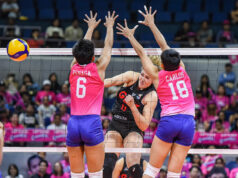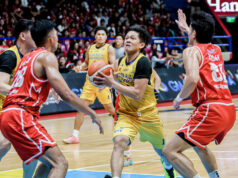“Like” wasn’t a word many normally associated with Jerry Sloan. Armed with a singular experience growing up in Hamilton County, Illinois, that informed his small-town ethic, he played hard and worked hard. He earned a reputation as a rugged, no-nonsense defender who gave as much as he took. Chosen fourth overall in the 1965 draft, he spent a year as a reserve for the Bullets, and then the rest of his 11-year career epitomizing the Bulls’ leave-everything-on-the-floor style under Red Kerr and Dick Motta. He then applied what he learned from the aforesaid bench tacticians, and more, to carve a path as one of the most demanding to ever pace the National Basketball Association sidelines.
That said, Sloan delivered results, and how. He wasn’t out to win popularity contests; he was out to win, period. And though he was far from cozy with his charges, he earned their respect; they understood that his demanding disposition underpinned their exertions for continuous improvement. He was abrasive, frequently butting heads with the opposition, with referees, and even with those around him — and yet they understood that, with him, nothing went personal. He was businesslike in nature and brooked no transgressions, exactly the way the Jazz brass wanted him to be. Little wonder, then, that he lasted 23 seasons spanning a whopping 1,809 regular-season and 196 playoff games with the franchise.
Sloan loved basketball, and especially Jazz basketball — and the Jazz loved him. It’s why they hated to see him go after a dispute in 2011 with All-Star point guard Deron Williams, and why they welcomed him back as consultant one and a half years later. Significantly, he wasn’t just a paid face; he remained a fixture in practice, and would have continued to be had complications with Parkinson’s disease and Lewy body dementia not compelled him to leave the sport, and then life, for good. And it’s a testament to his gravitas that all and sundry mourned his death.
These days, Sloan’s type would not be a welcome sight in the NBA. Players now have too much power to be lorded over by pencil pushers who earn far less than they do. To be sure, he was unique even in his time. Ask those who became subjects of his ire and, at the same time, beneficiaries of his knowledge; they understand that they are all the better for having shared time with him. He never got to win a championship, but his validation lay in keeping at his craft. Again. And again. And again. As he himself noted, “I’ve always said that the most important thing in sports is to keep trying.” He has been, and will continue to be, missed.
Anthony L. Cuaycong has been writing Courtside since BusinessWorld introduced a Sports section in 1994. He is a consultant on strategic planning, oprerations and Human Resources management, corporate communications, and business development.



